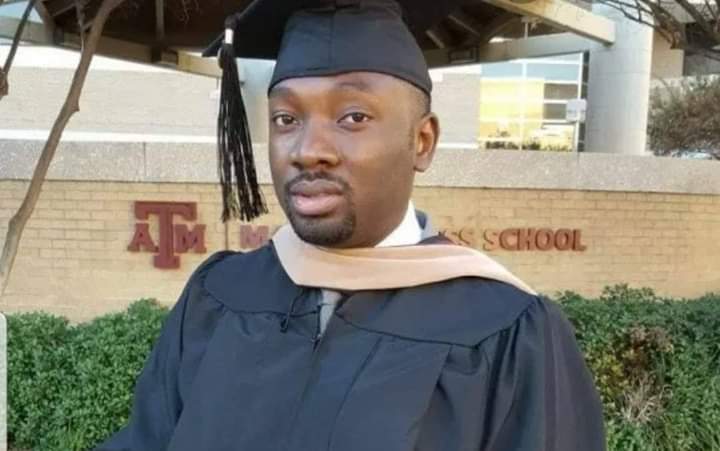Latest News
Olufolajimi Abegunde: Another Nigerian jailed in U.S. for role in international cyber-fraud

A citizen of Nigeria residing in Atlanta, Georgia, was sentenced to 78 months in prison Tuesday for his role in an international cyber fraud scheme, announced Assistant Attorney General Brian A. Benczkowski of the Justice Department’s Criminal Division and U.S. Attorney D. Michael Dunavant of the Western District of Tennessee.
Olufolajimi Abegunde, 32, was sentenced by U.S. District Judge Sheryl L. Lipman of the Western District of Tennessee who also ordered Abegunde to pay $57,911.62 in restitution to the victims of his offense.
Mr Abegunde and Javier Luis Ramos-Alonso, 29, were convictedin March after a seven-day trial in the U.S. District Court for the Western District of Tennessee.
Mr Ramos-Alonso previously received a 31-month sentence for his role in the scheme.
Messrs Abegunde and Ramos-Alonso participated in a criminal organization in which members “spoofed” emails and created fake profiles on dating websites in order to fool victims into sending money to bogus bank accounts under the control of members of the conspiracy.
The proceeds would be laundered and subsequently wired out of the United States to destinations including West Africa.
The organization as a whole is believed to have caused more than $10,000,000 in damage to U.S. citizens and businesses.
The evidence presented at trial showed that Mr Abegunde, who received an MBA from Texas A&M University in College Station, Texas, engaged in black-market currency exchanges over the life of the conspiracy.
Purporting to hold himself out as a legitimate businessman, Mr Abegunde claimed association with a business entity that was not yet operational in late 2017, so for his primary source of income he relied on his off-the-book currency exchanges.
Through this network, Mr Abegeunde played a key role, along with Mr Ramos-Alonso, in laundering fraud funds from an Oct. 3, 2016, business email compromise (BEC) of a land title company located in Bellingham, Washington.
The proceeds of another BEC perpetrated in July 2016 upon a real estate company in Memphis, Tennessee, also moved through parts of the same criminal organization.
Mr Abegunde, who faced numerous account closures from banks in the United States, used a complicated network of third-party bank accounts to disguise his illicit activity.
The proof at trial established that Mr Abegunde told people that he could not receive payments into accounts that could be “tracked,” and that he preferred to engage in cash transactions because they were easier to clean and “eliminated the risk.”
In addition to his financial activities, Mr Abegunde also engaged in a conspiracy to commit marriage fraud. Mr Abegunde was married during his studies at Texas A&M, but divorced his wife in 2016 to marry a U.S. service member through whom he could obtain immigration and health care benefits and also open new bank accounts.
He continued to live with his first wife in Atlanta while his U.S. service member wife was deployed to South Korea.
While incarcerated and awaiting trial in the Western District of Tennessee, Mr Abegunde continued his conspiratorial activities, trying to convince his fake spouse, who has since filed for divorce, to refuse to testify against him.
Mr Abegunde also engaged in witness tampering by sending a self-written Motion to Dismiss bearing his former attorney’s name and professional attestation.
The evidence at trial established that Mr Abegunde drafted and sent the motion, which his attorney expressly did not authorize, to his faux spouse in an effort to deceive her into not testifying against him.
Five other individuals have pleaded guilty to being involved in the scheme. Additionally, several foreign nationals are awaiting extradition to the United States to face trial. Others are still at large.
The FBI’s Memphis Field Office investigated the case with assistance from agents in Atlanta and San Jose, California. Senior Trial Attorney Timothy C. Flowers with the Department of Justice’s Computer Crime and Intellectual Property Section and Assistant U.S. Attorney Debra L. Ireland prosecuted the case.
The Criminal Division’s Office of International Affairs is handling the extraditions.




















